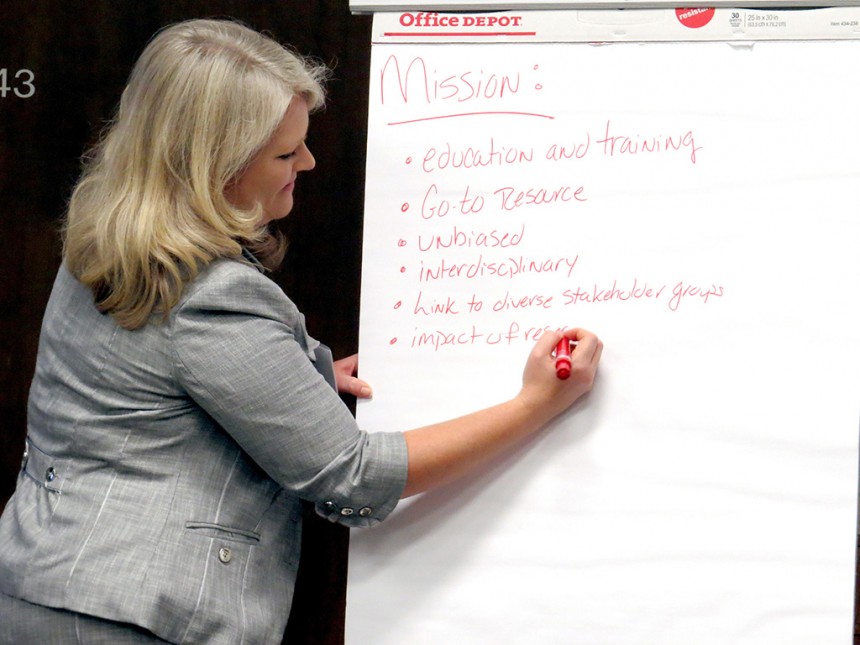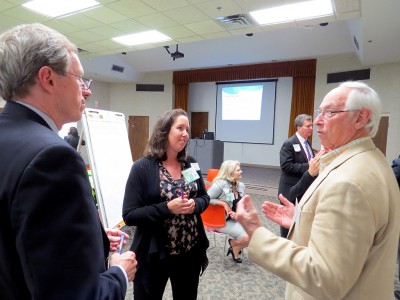
Post-doctoral associate Angie B. Lindsey takes notes at the advisory board’s strategic planning session in March.
The PIE Center is taking an all-hands-on-deck approach to creating a new strategic plan.
The plan, more than a year in the making, has involved upward of 25 PIE Center faculty and staff, advisory board members and faculty in the Department of Agricultural Education and Communication.
“The current plan was written for 2011, when the PIE Center was much smaller, did not have permanent state funding and had much different goals,” Director Ricky Telg said. “Now that we’ve tripled in size and have developed so many more resources and relationships, it’s time to revisit our strategic plan and develop something that steers our future development.”
PIE Center faculty, staff and selected collaborators gathered in March 2013 to begin the process. They identified and discussed the strengths, weaknesses, opportunities and threats that the PIE Center faces.
Angie B. Lindsey, a post-doctoral associate, then led the team through a strategic planning process to draft potential mission and vision statements and an outline of strategic goals for advisory board members to discuss.
The full board and its executive committee participated in separate conference calls to evaluate and debate the materials before gathering in Gainesville in March for an intense, full-day strategic planning session with PIE Center faculty and staff.

Alexa Lamm, center, discusses the PIE Center’s future goals with advisory board members Greg Strader, left, and Ron Hamel, right.
“I’m grateful the advisory board has taken on this challenge and played an active role in defining what goals we strive for,” Telg said. “With their help, we’ll not only have ambitious objectives, we’ll have the ideas and methods with which to attain them.”
The 2011 plan identified two overarching goals: public opinion research and educational outreach. In the March meeting, the advisory board identified four potential goals: research, education, outreach and organizational growth.
Through research, the PIE Center would seek to increase its academic publications and grant-funded projects with national partners while increasing industry and policymaker engagement. Educational goals revolve around fostering the PIE Center’s large pool of graduate student assistants before and after graduation.
Advisory board and PIE Center members also placed importance on improving relationships and interactions with target audiences in person, online and with strategic marketing campaigns. At the organizational level, the PIE Center would grow fiscal and human resources along with national collaborations and interdisciplinary grants.
“We’ve entered into a new era, and these goals are much better suited to our vision of becoming the preeminent research and education center when it comes to the public perceptions of agricultural and natural resources issues,” Telg said.
The PIE Center formed an internal committee to finalize the mission and vision statements and begin writing the strategic plan. The committee comprises Telg, Lindsey, assistant professor Joy Rumble and media specialist Laura Bernheim and aims to distribute the plan for advisory board feedback and ratification at the annual meeting in October.

















